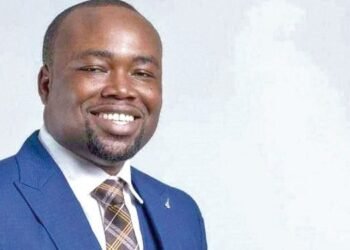Ghana’s judicial system is undergoing significant reforms, particularly concerning jury trials, as highlighted by Her Ladyship Justice Lydia Osei Marfo and Her Ladyship Justice Afia Serwaa Asare Botwe.
The two Justices addressed proposed changes, emphasizing the need for efficiency, fairness, and increased citizen participation in the administration of justice.
Expanding the Jury Pool
One of the key reforms involves expanding the jury pool beyond the usual public and civil service employees.
Justice Asare Botwe explained that previously, the judiciary would request nominations from specific government institutions, leading to a limited and sometimes repetitive selection of jurors.
However, the new approach allows the judiciary to call upon individuals from any institution, including private enterprises and legal firms.
“The new thing is that instead of just writing to civil and public service offices and asking them to nominate people for us, we can call anyone in any institution”
Justice Afia Serwaa Asare Botwe.
A pilot program in the Central Region has already seen institutions submit their full staff lists and job schedules.
From these lists, the judicial service selected 60 jurors. This method, according to Justice Asare Botwe, ensures a fairer and broader representation of society in jury trials.
Institutions will now be legally required to submit full, unedited staff lists. Any attempt to withhold names or selectively submit employees will be considered a violation of the law.
Accountability and Sanctions for Absentee Jurors
Justice Osei Marfo addressed the long-standing issue of jurors failing to appear in court, which has often delayed trials.
Under the new system, jury lists will be created twice a year in May and November ensuring a fresh rotation of jurors.
Moreover, individuals selected for jury duty must attend court unless they provide a valid reason for exemption.
“We used to have jurors who kept coming and going for years. That is no longer the case. If you are called upon to do jury duty, you must show up unless you present valid grounds for exemption”
Justice Lydia Osei Marfo
The judiciary will now impose stricter penalties for absenteeism.
Jurors who fail to appear without justification may face fines or other legal consequences. Witnesses who refuse to testify can also be compelled by law.
Enhancing Efficiency
A major complaint about jury trials in Ghana has been their prolonged nature. Cases often drag on for months or even years due to inefficiencies, absentee jurors, and logistical challenges.
The new reforms introduce a structured timeline, requiring trials to be completed within a set period.
Justice Osei Marfo noted that trials will now follow a completion plan from the outset.
The prosecution and defense will receive case materials in advance, allowing them to prepare thoroughly.
“The judge will have a clear timeline; the first witness will testify on a scheduled date, and their statement will already be available to all parties” she explained. “This eliminates unnecessary delays.”
Additionally, the new system will follow a session-based approach.
Jurors will be assigned to cases for a specific period, sometimes a week or two, ensuring they remain fully engaged until the trial concludes.
“This is not going to be an interminable duty. We will have sessions where jurors sit for a few days or weeks, hear the case, and then get discharged. This allows for fresh selection for the next cases”
Justice Afia Serwaa Asare Botwe.

Citizen Participation and Legal Framework
Jury trials play a crucial role in Ghana’s justice system, particularly for serious offenses such as terrorism, financial crimes, and first-degree felonies punishable by death or life imprisonment.
The Justices emphasized that citizen participation in jury trials strengthens the legal system and ensures that justice is truly representative of societal values.
Justice Asare Botwe highlighted Article 19 of Ghana’s Constitution, which guarantees the right to trial by jury for certain offenses.
She also explained that individuals between the ages of 25 and 60, who are literate in English and reside in Ghana, qualify to serve as jurors.
However, certain professionals, such as editors of daily newspapers, diplomats, and foreign government employees, are exempt.
“For those who qualify, serving as a juror is an honorable duty” she said. “It allows ordinary citizens to participate in justice administration and gain a deeper understanding of the law.”
Legal Community and Police Involvement
To ensure the success of these reforms, all stakeholders in the justice system, including lawyers, police officers, and court officials, will be held to higher accountability standards.
Justice Osei Marfo revealed that police investigators who fail to present accused persons or witnesses in court will face disciplinary action.
Similarly, lawyers who fail to appear for cases without justification will be sanctioned under Ghana’s legal professional conduct rules.
“We are going to deal with them in accordance with Regulation 2098 of the Professional Conduct and Etiquette Rules. Any lawyer who knows they are supposed to be in court but fails to show up will be dealt with by law”
Justice Lydia Osei Marfo
These reforms align with broader judicial improvements led by Ghana’s Chief Justice.
The judiciary has introduced three new practice directions focusing on disclosures, effective case completion strategies, and jury trials.
Under the new disclosure rules, prosecutors must submit all relevant evidence before an accused person is arraigned.
This ensures that defendants can make informed decisions, including whether to plead guilty.
The reforms mark a significant step toward a faster, more transparent, and accountable jury trial system.
By expanding the jury pool, imposing stricter attendance requirements, and introducing structured trial timelines, Ghana’s judiciary aims to enhance fairness and efficiency in its criminal justice process.
READ MORE: UN Chief Proposes ‘Effective Force’ to Combat Haiti Gangs



















